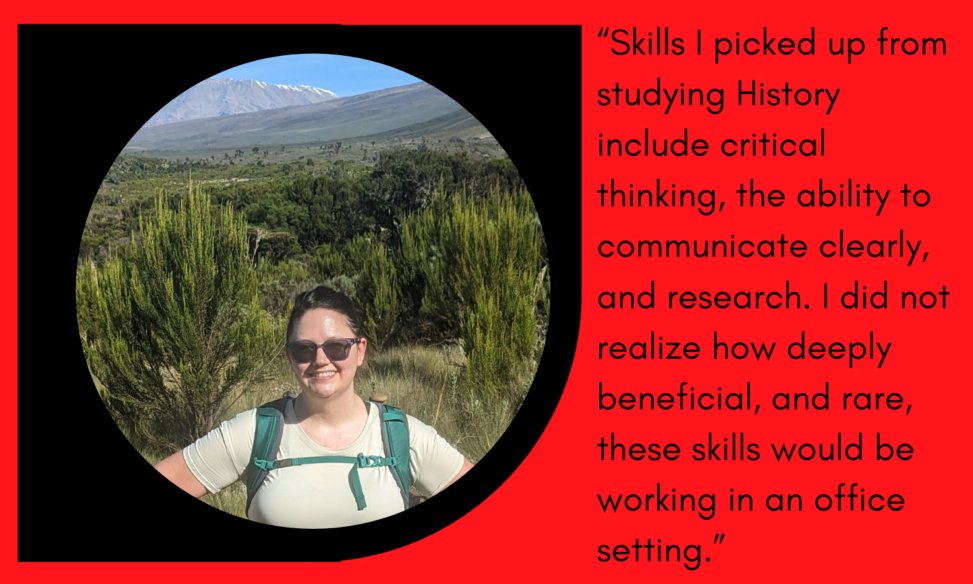I was born in Cincinnati and still live in the area. As far as hobbies go– I’m a reader, I love to hike and travel, and I can usually be found hanging out with my big, brindle rescue dog. I graduated from UC in 2014 with a major in History, a minor in Women’s, Gender, and Sexuality Studies, and a certificate in Middle Eastern studies. In spring 2014, my capstone, “The Second City Industrially’: Early Twentieth-Century Chicago, African American Working Women and the Political Manipulation of Women’s Trade Union League, ” won The George Newburger Award for the Best Capstone Essay in U.S. History.
What are you up to these days?
I am an instructional designer and eLearning content developer for a technology company.
What brought you to history at UC?
Frankly, UC was my best chance at getting a college education as a first-generation college student and graduating with minimal debt. I knew I wanted to at least minor in history since high school since taking AP history courses, and the rest fell into place.
What did you focus on as a history student at UC?
I focused specifically on women’s and gender history, and 19th and 20th century US labor and social history.
Did you have any favorite history courses? Which ones and why?
I really loved a class that covered comparative gender history between Britain and the US, and my senior capstone class was also a great experience.
What did you focus on in your capstone and why?
My capstone, ” ‘The Second City Industrially’: Early Twentieth-Century Chicago, African American Working Women and the Political Manipulation of Women’s Trade Union League, ” explored how the Women’s Trade Union League’s in Chicago used Black women as political pawns to advance their agenda, instead of creating labor opportunities for them. I stumbled on an interesting quote from the primary source documentation I was pulling from the that indicated that Black women in Chicago had been offered extremely low levels of career advancement for being the city with the third largest Black population in the country at the time. From there I was able to dig into how the most prominent women’s trade union in the country at the time repeatedly failed Black women, while at the same time espousing progressive values and pointing to specific Black women workers when it was convenient for them to do so. Tokenism still takes a very similar form in all kinds of organizations today, so being able to pinpoint how it was being used in a historical context is interesting and useful for comparative purposes.
